The United Nations Climate Change Conference (COP28) to be held in Dubai in 2023 will also be a year of climate legalization in Taiwan. For the public sector, it will demonstrate Taiwan's determination to participate in global issues, while for the private sector, the diversified thematic activities will continue to shape the goals and directions of action for sustainable issues.
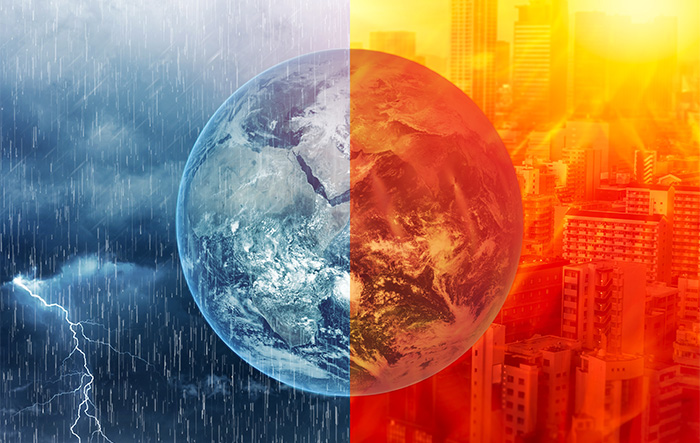
As globalization accelerates and environmental issues intensify, sustainable development has become an important goal agreed upon by all countries. In the face of challenges such as climate change, social inequality and loss of biodiversity, the survival of human beings is under great threat. Therefore, it is expected that the promotion of sustainable development will be stepped up to ensure the quality of life of future generations, and both enterprises and individuals should actively work hard to realize this vision, work together to realize this vision, care for the earth, and create a green and sustainable road.
Reflecting on the value of a sustainable existence
“Sustainable development comes before sustainable development goals (SDGs).” According to Hsin Cheng Yeh, a professor at the Institute of Graduate Institute of Sustainability Management and Environmental Education, the SDGs are not simply a set of 17 items, but the core spirit of the SDGs encompasses diversity, inclusive development/inclusion, and no one left behind, and each of the goals is interconnected with the item’s underneath, which is a synthesis of the core concepts.
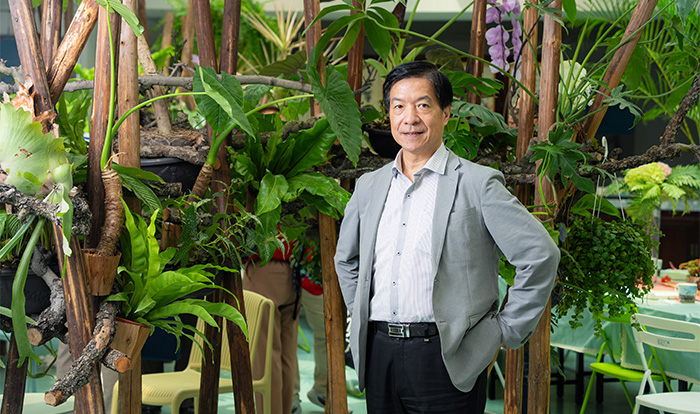
In 1987, the 42nd United Nations General Assembly issued the report Our Common Future, which defined sustainable development as “the process by which the basic needs and aspirations of human beings are met in a way that ensures that future generations will have the opportunity to flourish”. According to Hsin Cheng Yeh, human beings are the largest base of the economy, society and the environment. For example, the mass death of bees a few years ago was not due to climate change, but to the over-spraying of crops with pesticides, which shows that the impact of mankind is not to be underestimated. Most people have a lopsided framework for recognizing sustainability, and exaggerated information has a strong dramatic effect. Statements such as “extreme weather will flood the Taipei basin, and forest parks will disappear” are eye-catching, but do not conform to current scientific discourse. Do we really know what SDGs mean when they become so popular? Hsin Cheng Yeh hopes that the public will be willing to spend more time to understand the meaning of SDGs.
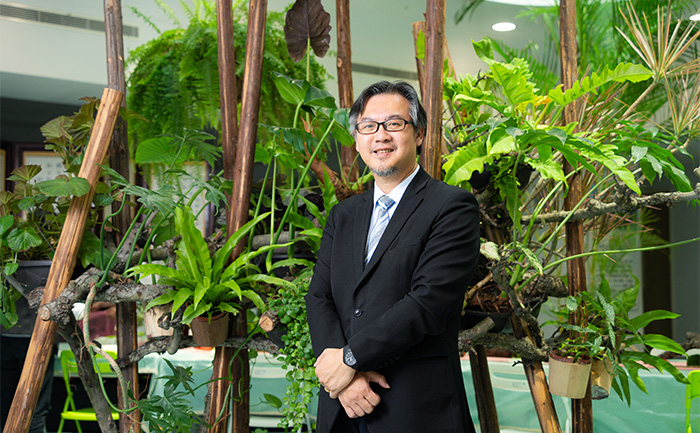
Kung Yue Chao believes that climate change is also a development issue, and that it is important to minimize the impact of human activities.
International Climate Development Initiative (ICDI) Executive Director Kung Yue Chao said that climate change is the world's biggest challenge at this stage, but also a development issue, and how to reduce the impact of human behavior on the environment is a goal that countries still need to work on. Chi Jung Chiu Associate Professor of the Department of Forestry and Resources Conservation, NTU, also lamented that human damage to the environment has caused many problems. The greenhouse effect has increased the earth's temperature, and in 2023, Canada experienced the most destructive forest wildfires in history, resulting in the destruction of 15 million hectares of forest land, equivalent to 5.15 Taiwan, and the forced evacuation of 230,000 people from their homes.
Chi Jung Chiu hopes that the public will realize that “the conservation of biodiversity is in fact closely related to climate change” when talking about sustainability. In addition to minimizing human interference with the Earth, translating scientific theories into practical actions is also an issue that modern people must implement as soon as possible. According to the World Meteorological Organization (WMO), it is estimated that correct forecasting combined with appropriate adaptive measures can reduce the number of meteorological disasters by 10% to 30%, with a potential damage reduction of NT$1.5 billion to NT$4.6 billion annually.
The biggest challenge to minimizing damage is “climate prediction”. Chia Ping Cheng, director of the Central Weather Administration(MOTC), said that climate prediction includes the interaction of the atmosphere and the ocean, the entire Earth's operational process, which must be combined with technological simulation, the more difficult in the prediction, and the longer the prediction period, which also affects the accuracy of the “must learn to make the best decision under the uncertainty”.
Industry-Government-Academia Collaboration to draw a blueprint for sustainability
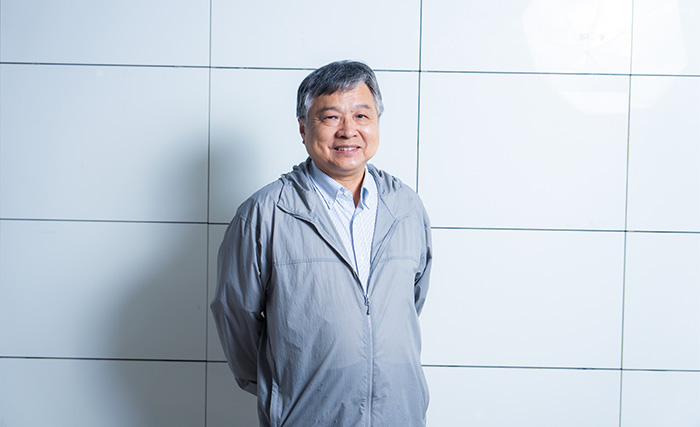
“Nature is a victim that has no voice and is being destroyed all the time.” Chi Jung Chiu said that after Taiwan's rapid economic development in the 1970s, the over-exploitation and utilization of land and sea, pollution from climate change, and invasion of foreign species have all been caused by human beings, and have deeply jeopardized the biodiversity in the long run. How to establish a stop-loss point? Chi Jung Chiu believes that we can start by avoiding and slowing down the damage, and then carry out restoration to gradually repair the dilapidated ecosystems and give animals and plants back their homes.
Nowadays, MOTC also integrates climate knowledge, science, change and forecasting applications into “weather services” to provide users with comprehensible information for management decisions. For example, in cooperation with the Ministry of Agriculture (MOA), MOTC provides customized forecasting services, and as of the end of 2022, there are already 345 agriculture-related forecasting points, including crop specialties, livestock production, and agricultural weather stations; or cooperate with the Ministry of Health and Welfare to launch the “LOHAS Weather” APP, which analyzes heat hazard indicators with big data, and provides health education on heat hazards. Chia Ping Cheng hopes that the MOTC can turn passive into active, and provide users with sufficient information to make application decisions, so as to achieve a win-win-win situation in terms of reducing risks, minimizing disasters, and creating benefits.
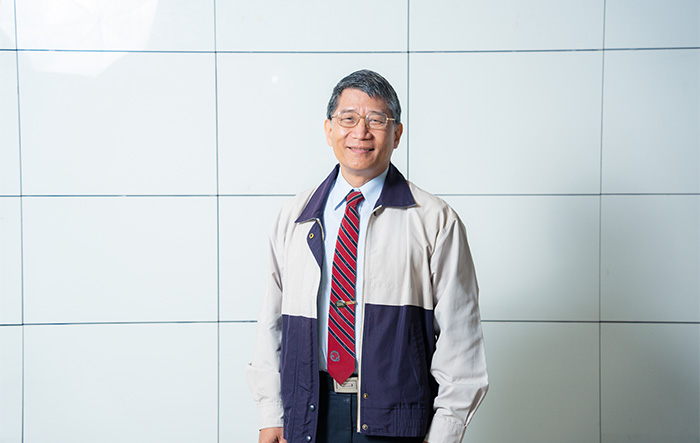
ICDI is planning to hold the 4th Climate Action Expo (TWCAE 4) from October 18 to October 20, 2024 at the Taichung Museum of Natural Science. With the theme of “Science-based Regional Climate Action”, ICDI will bring together the 8-county and city life circle in central Taiwan, and look forward to creating a diversified and inclusive field, and to find their own “sustainability superpower” through it. Through ICDI, all sectors will work together to create more sparks of sustainability, and utilize everyday situations to allow the public to naturally come into contact with and understand sustainability, internalizing it as part of their daily lives, and bringing sustainability closer to the public. We are looking for a healthier future for our feverish planet.